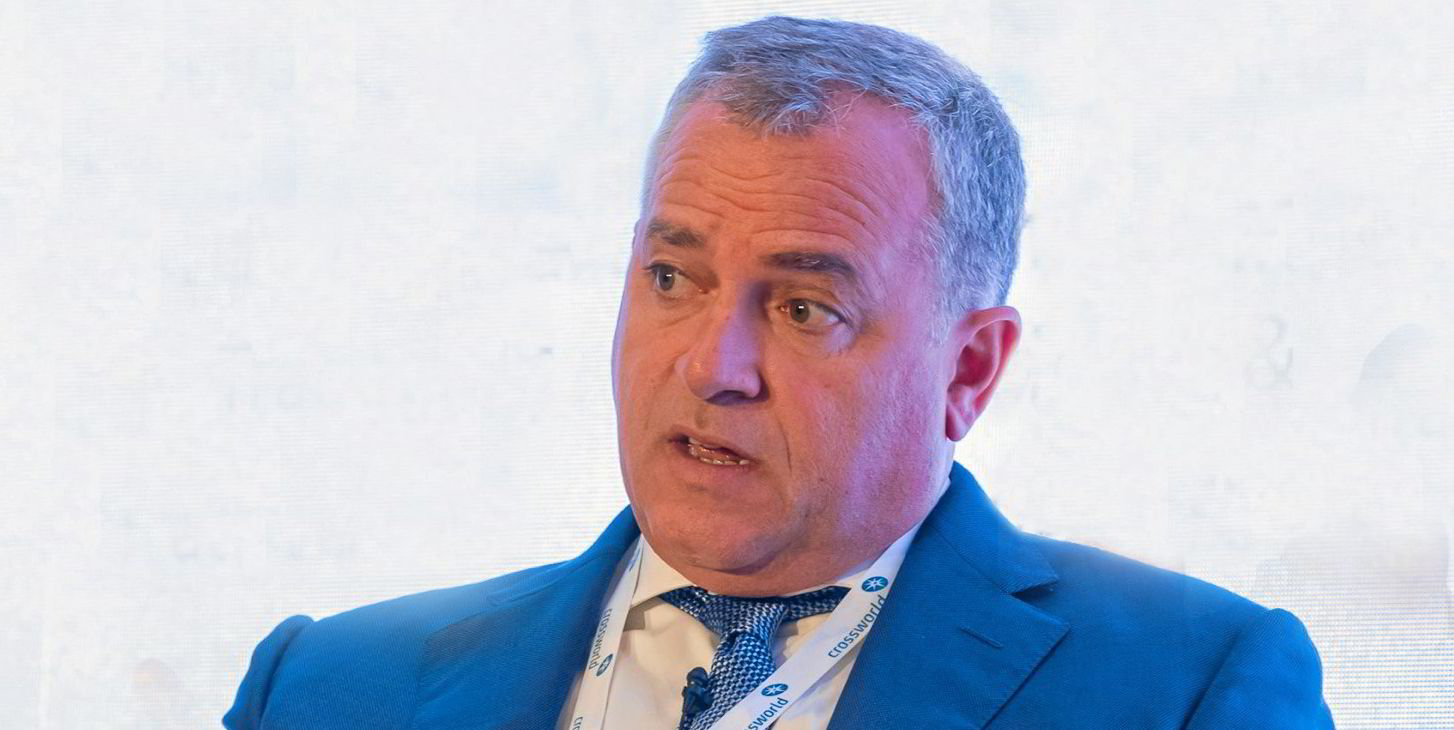Greener shipping is an undisputed goal but there is a great risk of taking the wrong turn to get there, argues Harry Fafalios, chairman of the Greek Shipping Co-operation Committee.
“We can’t afford to see it go wrong,” the head of the biggest and most traditional association for Hellenic shipping outside its home country told TradeWinds on the sidelines of Posidonia.
According to Fafalios, none of the choices usually flaunted — whether ammonia, LNG or methanol — are clean enough on a well-to-wake basis and “totally fit for purpose” to cover the entire industry.
“I don’t believe yet we have found one solution going forward, in the same way that we did in the 1920s and 1930s when we converted from coal to oil — it’s not as clear-cut this time,” he said.
With international regulators in the process of adopting regulations that are already changing the face of the industry, the head of the London Greeks urged caution.
“We all want a green future for our children and our grandchildren, we desperately want to be part of that. But we want most of all well thought-out technical, practical maritime solutions and — most importantly — solutions that are safe for our seafarers,” he said.
Fafalios made no bones about which regulator he thinks is best to agree such solutions.
“I believe that the IMO is the most competent authority, way above anybody else,” he said.
“Having had conversations with the [IMO] secretary general [Arsenio Dominguez], I believe that they will try to come to a mature decision.”
The way shipping was included in the European Union emissions trading scheme (ETS) is one example of why Brussels should leave shipping’s regulation in the IMO’s hands.
“It [the ETS] is a very prominent revenue-earning tool, but I don’t see it doing it anything for the environment,” he said.
“Charterers are choosing ships which have the cheapest ETS bill rather than the ships that will be the most economical fit-for-purpose vessels,” Fafalios added, complaining of “unusual trading patterns” that have emerged in the first months of the measure’s introduction.
“Europe was very well meaning but it does not have the maritime sophistication to understand the totality of the issue. They think they do, but it’s not just [a matter of] ‘tax and forget’.”





